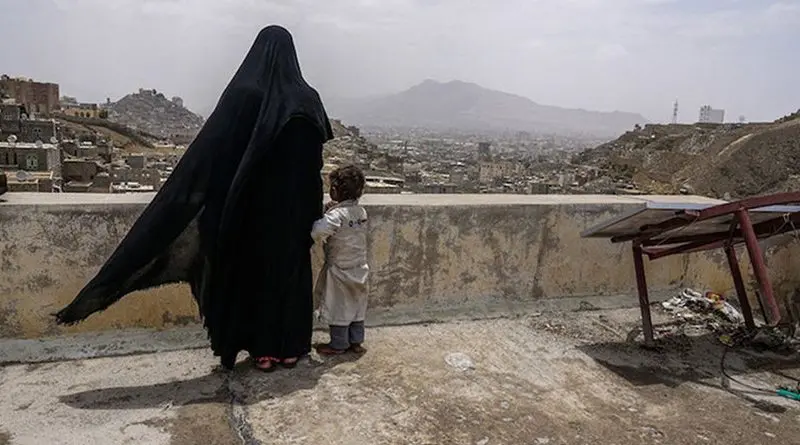Biden’s Yemen Policy Needs Urgent Rethink – OpEd
By Arab News
By Maria Maalouf*
The series of events that took place during the third full week of the life of the Biden administration last week was very unfortunate. It began with the US government’s announcement that it would remove the Houthis from its list of terrorist organizations and was followed by the subsequent attack by that group on Saudi Arabia’s Abha International Airport, as well as speculation over what the pro-Iran political adviser Robert Malley will do to harmonize American-Iranian relations.
These wrong steps are dangerous elements in what appears to be a very troublesome approach by the White House toward Iran and Yemen. At the outset, it is very important for President Joe Biden and his Middle East team to recognize the limits of their reconciliatory attitude toward the Houthis and Iran. Neither of them wants American concessions — they desire an American defeat.
The attack against the civilian airport in Abha last Wednesday was so ferocious that it caused a fire on a civilian airplane. The official Houthi television channel Al-Masirah announced that four pilotless Samad-3 and Qasef 2-K military airplanes were able to accurately hit military targets inside the premises of the airport.
What Biden does not understand about the Houthis is their organizational abilities, which are characteristic of their terror practices, and their ability to trigger an instant crisis if they see a retreat from America on how to confront them. Worse, the language used in the announcement of the removal of the group from the official US terror list was nothing but illusionary. The White House stated: “The revocations are intended to ensure that relevant US policies do not impede assistance to those already suffering what has been called the world’s worst humanitarian crisis. By focusing on alleviating the humanitarian situation in Yemen, we hope the Yemeni parties can also focus on engaging in dialogue.”
Here lies the gravest mistake of the Biden administration in regard to Yemen. The statement ignored who is actually causing the humanitarian disaster in Yemen. The Houthis are the main culprits in bringing Yemen to this nadir of human living conditions.
David Beasley, the executive director of the UN’s World Food Programme, told the Security Council in 2019 that the Houthis were preventing food shipments reaching the needy by confiscating them. Other reports from international monitors have described how the Houthis spoiled food packages to prevent them reaching the Yemeni people. This discouraged many donor countries from sending food aid to Yemen.
Meanwhile, Malley’s role could turn the whole Iran file into a suspicious doctrine of anti-Gulf Arab references, written with naivety to appease Tehran and its system of organized terror. In the New York Times, journalist Michael Crowley described Biden’s new envoy to Iran as “a well-known advocate for engaging with groups and governments — including, over the years, Hamas, Hezbollah and President Bashar Assad of Syria — widely considered enemies of the United States and Israel and, by some, morally off limits for contact.”
Biden seems to be willing to listen to “moralizing” speeches by Malley on the need to “rebalance” America’s relations with the Arab Gulf states so as not to shun Iran as a pariah state.
It could be a ruinous situation for world peace and regional stability when a new US administration mortgages its future in the Middle East on placating a terror group. It is the least productive foreign policy perspective when US presidential advisers are advocates for rogue states and regimes that are political outcasts. These wrong policies did not originate in the transition period, as Donald Trump was trying to remain president for a second term, but they are the strongly held beliefs of many members of the Democratic Party foreign policy establishment. Hence, it will be difficult to change their faulty views soon, unless they are proven wrong.
There is still a chance for Biden to rethink the idea that Yemen’s civil war will only be terminated by assigning a role for the Houthis in the future of the country. Sadly, more terrorist acts similar to what has been happening in Saudi Arabia cannot be ruled out. If America under Biden is not willing to stand up to Houthi terror, the Arab Gulf states will have no choice but to undertake the strategic task of eliminating the Houthis themselves.
- Maria Maalouf is a Lebanese journalist, broadcaster, publisher, and writer. She holds an MA in Political Sociology from the University of Lyon. Twitter: @bilarakib


At the end of the article Maria Maalouf writes „If America under Biden is not willing to stand up to Houthi terror, the Arab Gulf states will have no choice but to undertake the strategic task of eliminating the Houthis themselves.“ Why should it be America‘s task to deal with the Houthi in Jemen? This is a regional conflict to be solved in the region by the regional players. Hopefully in a balanced manner.